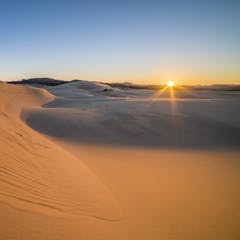
Articles sur Indigenous
Affichage de 1 à 20 de 610 articles

Truly fostering accessible educational opportunities for deaf students can only happen with ongoing political and financial support.

A better understanding of Indigenous businesses in Australia could build on the already significant contribution they make to the economy.

Indigenous people have long spoken about coercive practices of officials and experts around birth control, as late as the 1960s. Now historians are finding evidence in the government’s own records.

Research partnerships with the people and communities affected help to challenge health inequities, and support person-centred care in health systems.

For centuries, colonial powers have used starvation as a tool to control Indigenous populations and take over their land and wealth. A look back at two historic examples on two different continents.

U.S. laws on the repatriation of Indigenous artifacts and remains still uphold inequities in the relationships between Indigenous people and the agencies holding their materials.

It’s possible to work with restricted resources to design and implement creative initiatives to serve the particular needs of Indigenous students at university.

Ontario’s Ring of Fire could make Canada a minerals superpower, but Indigenous consultation is essential to ensure doing so does not harm reconciliation or Canada’s global reputation.

To First Nations women, ‘care’ is more broad and all-encompassing than traditional definitions. We need a new approach to capturing, and appreciating, their work, paid and unpaid.

When Frank Herbert sat down in 1963 to start writing ‘Dune,’ he wasn’t thinking about how to leave Earth behind. He was thinking about how to save it.

Critics have said the government’s efforts to revitalize Indigenous languages are colonial and do not engage with Indigenous Peoples on an equal footing.

Improving the intercommunity mobility of First Nation Peoples is a road to more inclusive and safer futures. This calls for recognizing Indigenous agency and sovereignty when developing solutions.

There is no express right to health in New Zealand law. But international agreements protecting Indigenous rights to health and wellbeing set the standard New Zealand should follow.

Integrating local and Indigenous knowledge into conservation can help to support diverse diets without compromising biodiversity goals.

Encampment sweeps in Edmonton are a brutal attack on both human and treaty rights, as well as a continuation of the violent removal of Indigenous Peoples from their land.

Australia lags the US and Canada when it comes to involving Indigenous people in projects on their land. With the growth of renewable energy we have an opportunity to make a fresh start.

The Settlers of Catan codified a certain kind of game play based on the history of settler colonialism.

In both mainstream and Indigenous communities across Canada, sport is neither inherently good nor bad. Rather, it is a tool that must be used responsibly.

Profits, not social justice, appear to be why the big grocers are dropping support for Australia Day. But creating a distraction when they’re being criticised for high prices is also possible.

The lessons from Tasmania are clear. Asserting Indigenous rights in Canada can be mutually beneficial for all.
